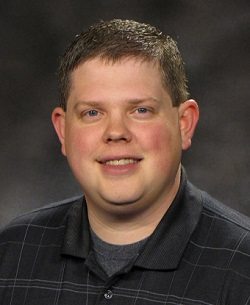In the 1970’s, a man by the name of Richard Foster wrote an important book on the subject of spiritual disciplines. The book was entitled, “Celebration of Discipline,” and it has since become a central book in the revitalization of the idea of “training in godliness” as Paul speaks of in 1st Timothy 4:7. As Foster details many of the disciplines that the church has found valuable throughout its near two millennia of hisotry, he helps the believer in Christ understand his own unique role in cooperating with the grace of God to experience spiritual transformation. Just as physical growth requires training and exercise, so also does the growth of the soul. One of the ways that both the Bible and history have promoted as a means to experience that growth, is through the nearly forgotten practice of fasting.
I say forgotten, because Foster mentions in his chapter on fasting that when he sat down to try to research the subject, he could only find a handful of books that had been written on the subject in the last 100 years. That was quite shocking, seeing as fasting plays such an important role in the Bible. So as we take up this final subject in Jesus’ teaching about our “religious reputation” in the Sermon on the Mount, it may at first seem strange to us. We wouldn’t think about fasting before others, because it is quite likely we don’t think about fasting at all. But there are several important things for us to consider here.
First, we must answer the question of why anyone would want to show off in fasting in the first place? Even though fasting was much more common in the ancient world than it is now, fasting was still often seen to be something for the “spiritual” elite; especially for those who fasted several times a week or for long periods of time. Much like prayer, apparently people often played up the effects of their hunger, so that others would know their high level of “spiritual devotion.” But Jesus accuses those guilty of this show with the same charge of those who pray in order to be seen in public. Their audience is not God, but whoever they wish to impress. Such a person should not expect to receive any spiritual benefit from their practice. But like prayer, that which is done is secret, before an audience of one, is seen and then rewarded.
One might ask at this point, “how is one rewarded in the process of fasting?” Sometimes fasting is commonly mistaken for a way of manipulating God to do for us what we are asking him to do. In this sense it is a way of telling God what we REALLY want him to do, and hoping he will see our dedication and reply favorably. But fasting is not a means of manipulation. Fasting is a way of learning in greater depths what we already know to be true. Our lives are not sustained simply by bread and water. Jesus tells us that “man does not live by bread alone, but by every word that comes from the mouth of God.”
What Jesus is telling us here is a literal fact. When we fast, God will sustain our bodies with his own word and power, rather than with the normal process of food. This does not mean we can live without food or water, for God has ordained food and water to be our normal means of sustenance. But, so that we do not confuse who really provides for our lives, we fast. It both teaches us and connects us in deeper ways to that source of energy who is the very source of everything seen and unseen. Fasting in order to be seen as “spiritual” by others denies the very thing fasting is intended to do.
In all three of these examples–giving, praying, and fasting–we see the importance of the principle of secrecy. Secrecy is not a law. The one who asks us to pray in secret is also the one who asks us to “let our light shine before men so that they may see our good works and glorify God in heaven.” But secrecy trains our hearts and minds to do our good works before God and God alone. This is of primary importance in the growth of our souls. Ultimately we will not stand before our peers. At the consummation of all things, it will only be us and God.
(Don’t forget to join me for A Message from the Heart radio program Sunday evening at 8:00pm on KJAK 92.7FM, or streaming live at www.kjak.com)
Curtis Baker (curtisbaker@hotmail.com)
Write to: P.O. Box 157, Slaton, TX 79364


